Your Cart is Empty
Free shipping on Orders $79+
Free shipping on Orders $79+
Explore

A Guide to Milk Substitutes for Dairy-Free Lifestyles
August 06, 2020 6 min read
For a long time, vegans and lactose intolerant individuals struggled to find suitable milk substitutes or alternatives, but that has all changed in recent years. There's been an explosion in the popularity of alternative milks - almond milk, pea milk, coconut milk, banana milk, and the list goes on and on.
It might have you wondering, “Is there anything thatcan’t be milk?” Anyone living a dairy-free lifestyle is surely thankful to see more options on the market, but it can be overwhelming for anyone who is attempting to wade into the pool of alternative milks.
So we're diving right in and making things easier for you. Our simple guide will show you the benefits of milk substitutes, what to avoid in alternative milks, and the most nutritious options out there.
What Are the Benefits of Milk Alternatives?
Why is there such a demand for alternative milks? Our certified holistic nutritionist, Annie, says there are several reasons for their popularity boom:
1. Lactose Intolerance
This is the most obvious reason why someone would avoid dairy. An estimated 65% of the world's population is lactose intolerant, so it's no surprise that there's a demand for milk substitutes. Lactose, the sugar found in milk, cannot be digested by many people which creates digestive issues.
2. Concern Over Animal Practices
It's also quite common for people to shun dairy milk products because of concerns about the environmental impact of the dairy industry. It's not the first thing that comes to mind, but dairy farming results in a significant amount of greenhouse gas emissions, contaminates water resources, and results in the degradation of land.
3. Fewer Calories
Alternative milks have also become a popular choice for anyone wanting to reduce their calorie intake. Milk from cows contains up to 12 grams of sugar from lactose, and an 8 oz. glass of milk will cost you 130 calories. Unsweetened milk substitutes can be as little as 30 calories per glass, which is why so many people are making the switch.
4. A Desire for Different Flavors
If you're not a fan of the texture or taste of cow's milk, these milk substitutes could be a better option. They're a great way to add different flavors to your diet, with each type offering something different.
Things to Avoid in Alternative Milks
There are so many milk alternatives - rice milk, nut milks, banana milk - but they all don't have the same nutritional value. Let's take a look at some of the things you should look for in a milk substitute:
1. Solid Nutritional Profile
If you're drinking milk alternatives for the nutrition, it's best to find one that has similar carb and protein amounts to cow's milk. This means something with about 12 grams of carbs and 8 grams of protein for an 8 oz. glass.
2. Avoid Additives
If you're a frequent reader of our blog, you'll know that it's best to avoid additives. It is common for some milk substitutes to contain additives that thicken the beverages to give them the consistency of milk. While the FDA considers additives like carrageenan and gellan gum to be safe, they may cause gastrointestinal discomfort. Our suggestion is to avoid milk substitutes with these additives.
3. Try Unflavored and Unsweetened
In addition to additives, you should also keep an eye out for extra sugars. It's not uncommon for milk alternative brands to add sugar to their products even if the label says "unflavored." It’s healthiest to find brands that don’t contain unneeded sugars.
4. Avoid Allergies
This one might be a no-brainer, but it's still important to mention. Make sure to avoid any milk substitutes that contain ingredients you're allergic to. Nut allergies are fairly common, so anyone with a nut allergy should avoid nut milks.
The Most Nutritious Milk Substitutes
Here are some of our favorite alternative milk options, as well as some information about each of them:
1. Organic Soy Milk
Soy milk is plant-based and made with soybeans. This milk substitute has a bit of a nutty taste that is often combined with vanilla or other flavors. Soy milk is a great alternative milk because it's very close to cow's milk when it comes to nutrition. Just make sure your soy milk is organic and non-GMO.
A single cup of soy milk is 80 calories, 7 grams of protein, 2 grams of fiber, and 4 grams of fat. However, soy milk should be avoided if you're allergic to soy or if you're worried about inflammation or gas, which are common side effects of consuming soy.
2. Hemp Milk
Yes, hemp milk comes from the industrial cannabis sativa plant, but there's no need to be concerned. Hemp milk is non-psychoactive, so it's nothing more than a great alternative milk. This nutty, creamy milk is full of healthy fats like omega-3 and omega-6 fatty acids and is a great source of protein and iron.
However, if you're looking for a milk substitute with calcium, you won't find much in hemp milk.
3. Pea Milk
It should come as no surprise that pea milk is created by milling peas into a flour and harvesting the resulting protein to combine with water and other ingredients. Sure, pea milk doesn't sound like the tastiest alternative at first, but it's actually quite smooth and creamy.
Plus, it's a plant-based milk substitute that packs a great protein punch, is low on calories and contains beneficial omega-3 fatty acids. Pea milk tends to be low in B-12 and a bit high in sodium, however.
4. Flaxseed Milk
Flaxseed is a favorite superfood of ours because it's packed with nutrition, so it should come as no surprise that flaxseed milk is a great milk alternative. It's a great source of omega-3 fatty acids, calcium, phosphorus, vitamin A, and vitamin D.
Flaxseed milk has very little protein, however, so you'll have to get your protein fix elsewhere. If you're using flaxseed milk for a smoothie, get the perfect amount of protein from ourVegan Vanilla Protein.
5. Coconut Milk
Coconut milk can be tricky because different kinds have varying fat levels. However, coconut milk tastes great if you enjoy the flavor of coconut and it contains healthy fats and a variety of vitamins and minerals. Just watch out for coconut milks that are higher in calories than other alternative milks.
6. Oat Milk
Oat milk is becoming a popular milk substitute due to its rich and creamy profile. This milk alternative is also a great source of protein and micronutrients like magnesium, zinc, folate, and more. On the other hand, oat milk is likely to contain more calories and carbs than other alternative milks.
7. Nut Milks
Nut milks often enjoy additional flavoring and added vitamins and minerals while also featuring low calories per serving. On the other hand, nut milks are often not a good source of protein. You'd think these milk substitutes would be great for protein since they come from nuts, but that is not the case since the solid matter is strained out.
A Match Made in Heaven
Regardless of which milk substitute you decide to go with, know that Smart Pressed Juice is the perfect pairing when you’re making a smoothie!
All of our juices are great choices, but you’ll especially love ourVegan Vanilla Proteini. Our Proteini is nature's perfect dose of protein with only 100 calories and 5 grams of carbs, so you can power your day the healthy way. Smooth and delicious, this tasty superfood blend activates your daily detox without any fillers or artificial sweeteners.
For more SMART lifestyle tips like this, visitwww.smartpressedjuice.com and follow us onInstagram andTwitter, or like us onFacebook. You can also visit ourAmazon store to stock up on our delicious juices.
Statements made on this website have not been evaluated by the U.S. Food and Drug Administration. Information provided by this website or this company is not a substitute for direct, individual medical treatment or advice. It is the responsibility of you and your healthcare providers to make all decisions regarding your health. We recommend that you consult with your healthcare providers regarding the diagnosis and treatment of any disease or condition. Products sold on this website are not intended to diagnose, treat, cure, or prevent any disease.
{"themeColor":"#574CD5","iconColor":"#574CD5","showLogo":true,"topBottomPosition":10,"rightLeftPosition":10,"iconSize":"small","iconCustomSize":64,"position":"bottom-left"}

